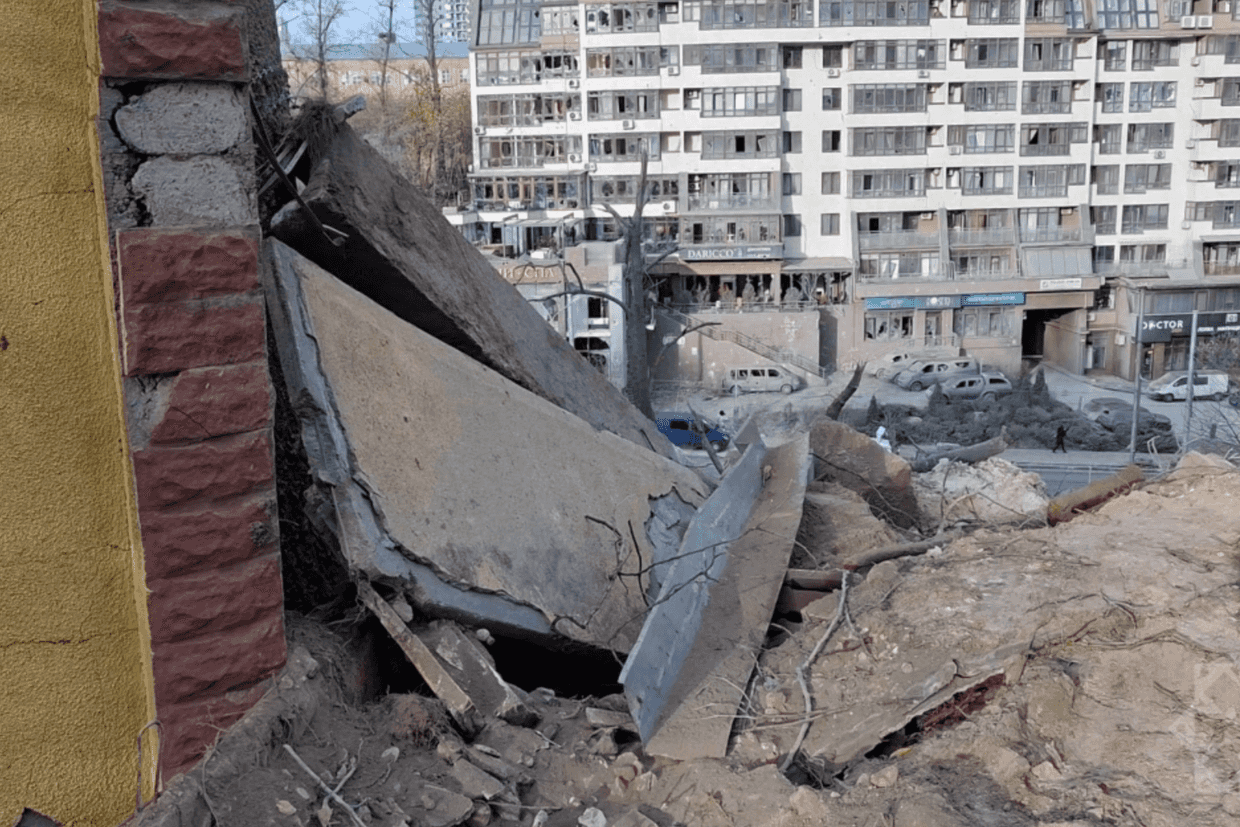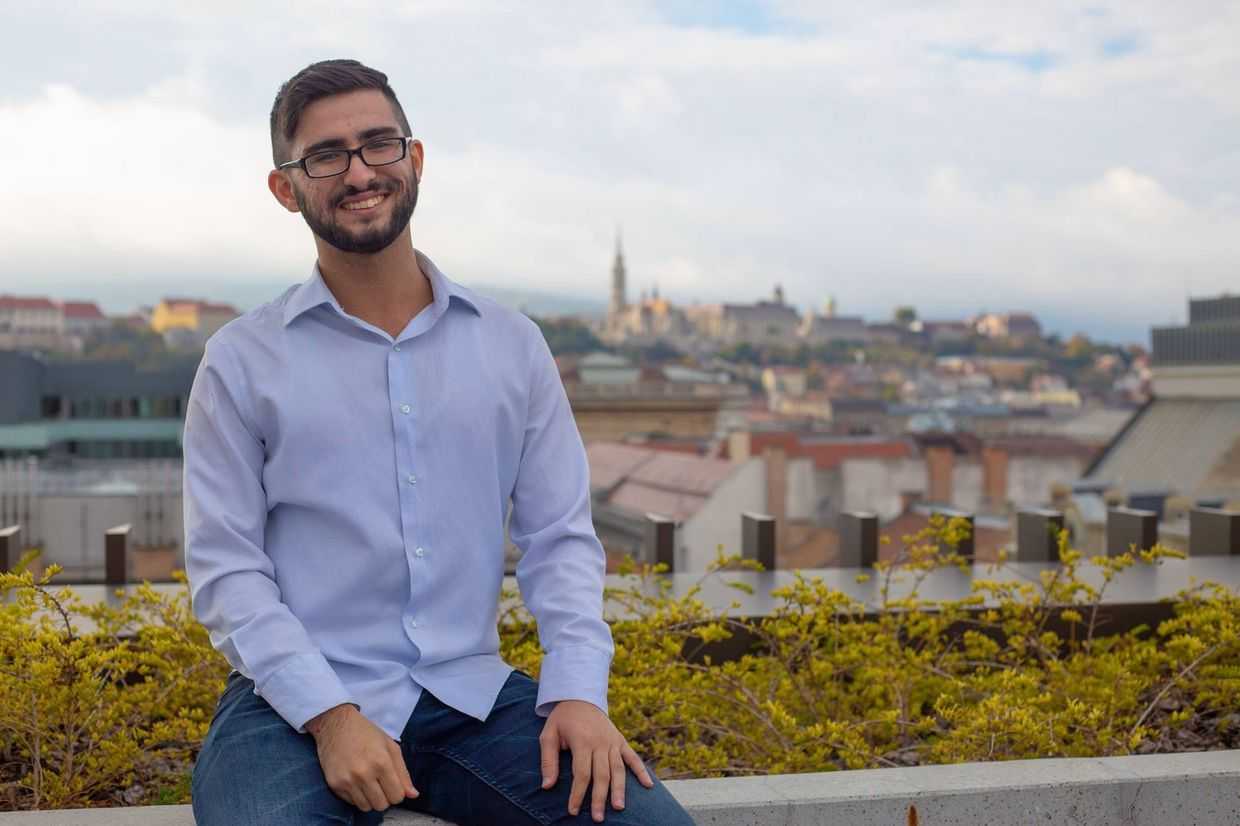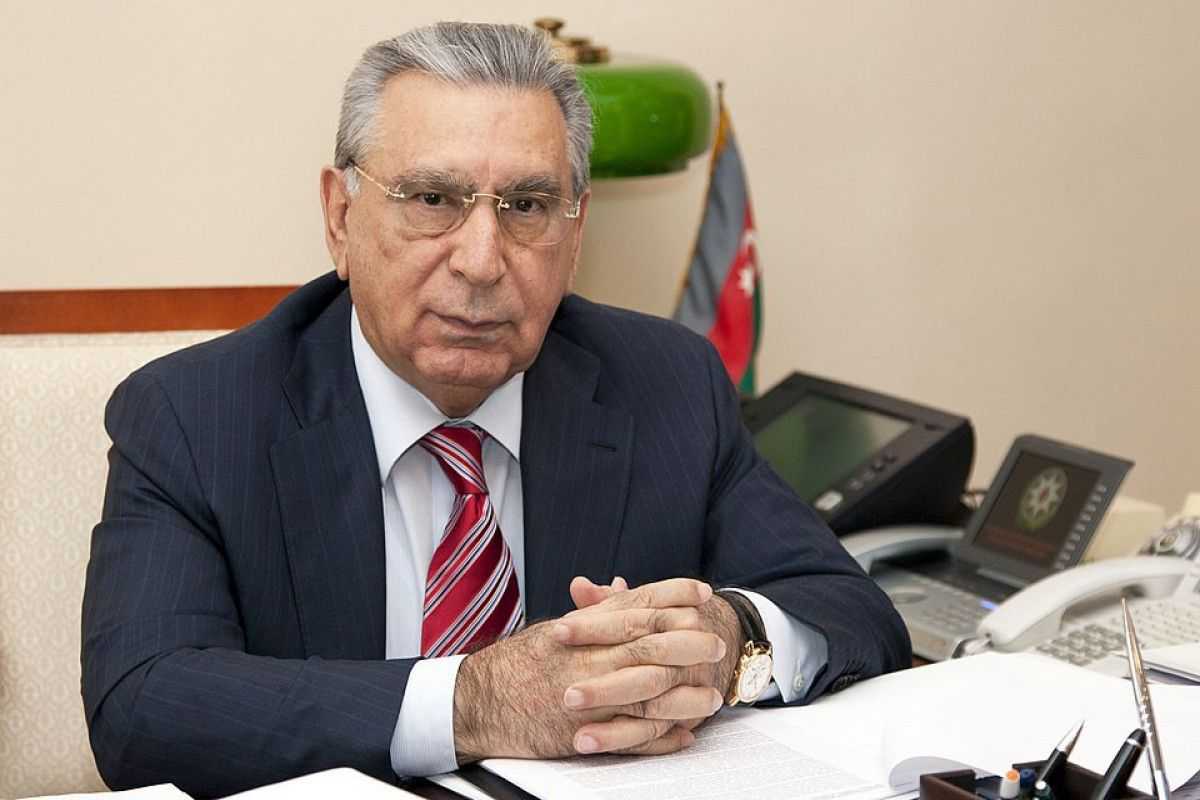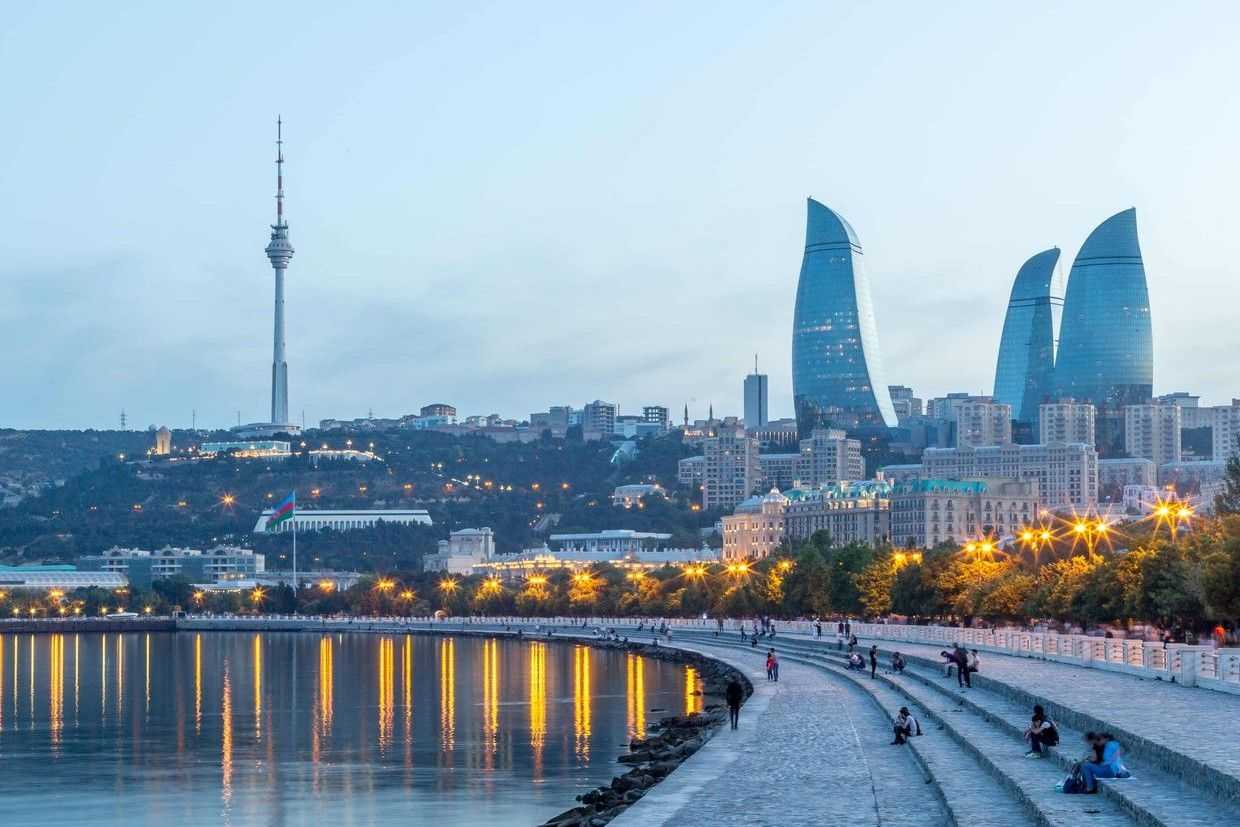
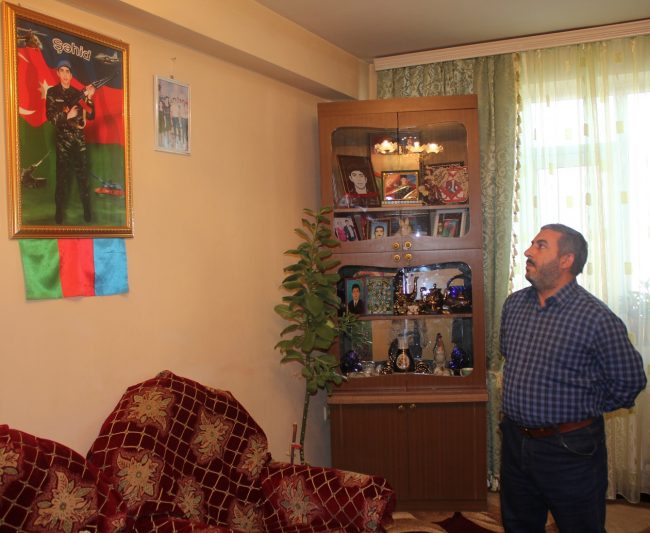
 While throughout the region there are debates around compulsory military service — how it applies to students or if it should apply at all — in Azerbaijan, a different debate is raging. Many are demanding exemptions for only sons in a family, who continue the family name, while most politicians oppose the move, calling it unpatriotic.
While throughout the region there are debates around compulsory military service — how it applies to students or if it should apply at all — in Azerbaijan, a different debate is raging. Many are demanding exemptions for only sons in a family, who continue the family name, while most politicians oppose the move, calling it unpatriotic.
Rashad Bakhshaliyev was killed while serving in the military during the April 2016 escalation in Nagorny Karabakh. He was the only son in his family. His father, Aliagha Bakhshaliyev, tells OC Media that all his hopes and dreams died with his son.
‘It’s necessary to reconcile with reality, but it’s impossible. No one can fill his place. I don’t wish such [a fate] even to my enemy’, Bakhshaliyev said.
Rashad had completed his military service on 1 April 2016, and an order was given to demobilise him. But that night, after tensions on the frontlines escalated, he was sent to the front where he was killed by Armenian army shelling. He is now regarded a war hero, or using Azerbaijani terminology, a martyr.
‘We had reserved a café near our house. We were going to celebrate his return. I wanted to arrange his engagement, he had a beloved one. My son was killed on 2 April, and we were informed on 11 April. We buried him on the 12th’, his mother Chimnaz says.
According to Rashad’s family, they did not want to send Rashad to the military as he had health problems, and there are documents proving that.
‘My son took those documents [from us]. He hid them somewhere and even after his death we couldn’t find them. He wanted to go to the military,’ his mother adds.
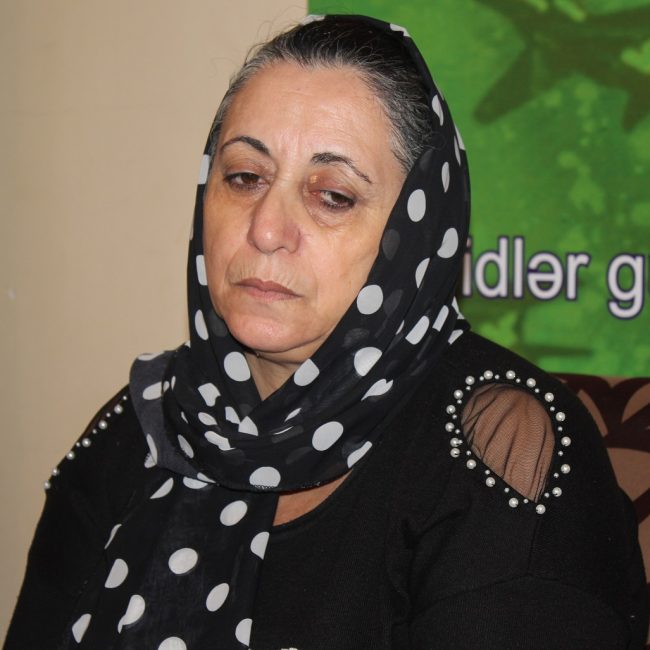
Rashad’s younger sister Gulnaz says she misses him: ‘We used to play together, laughing, fighting, now I feel lonely’.
Aliagha does not want families’ only sons to go to war. ‘It’s not because I’ve lost my son. I’ve always been against it. Only sons should at least not fight on the frontline; they should serve in the rear’.
Rashad’s mother agrees.
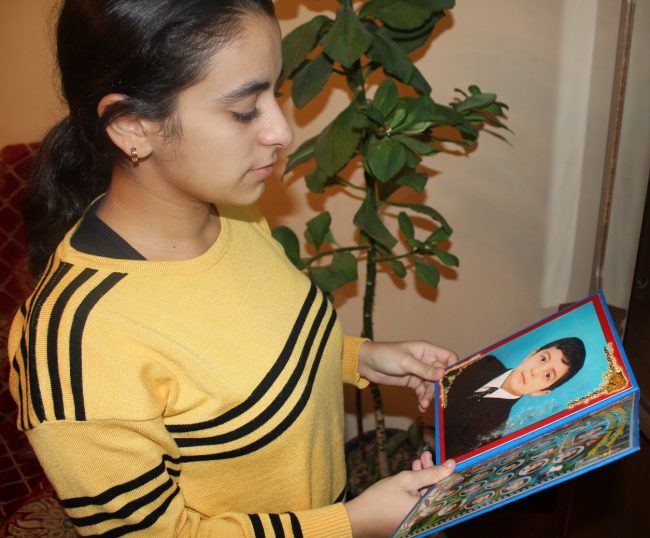
[Read from Georgia: Young Georgian draftees question compulsory ‘guard duty’]
Continuing the family name
In the Azerbaijani culture, sons have an unofficial status of ‘successors of the generation’. They are considered protectors, guardians, and breadwinners for the family.
The majority of young people in Azerbaijan, especially outside the capital, want their first child to be a boy. For this reason, most young families now take prenatal tests to find out the sex of their child and often decide to abort an unwanted pregnancy. A girl being born is often considered such a disappointment that it can even bring a marriage to an end. Special care and attention is given to a mother who gives a birth to the son.
According to the latest data from the Ministry of Justice, there is a large disproportion between the number of girls and boys being born. In January–May 2017, 47% of births were girls, compared with 53% boys. In 2016, the UN stated that Azerbaijan had the second highest disproportion in sex ratio of children born in the world.
Exemptions for ‘only sons’
According to Azerbaijan’s Law on Military Duty and Military Service, ‘every [male] citizen of the Republic of Azerbaijan who has reached the age of 18 and who is in good health shall have a term of active military service in the army of Azerbaijan.’
An exception for a family’s only son does not figure into Azerbaijani legislation, in spite of how widely debated the issue is in the country.
Uzeyir Jafarov, a reserve lieutenant-colonel and military expert told OC Media there were no obstacles to exempting only sons from military service, as there are enough human resources in Azerbaijan.
‘We have no problem staffing the army. The number of soldiers is enough. I support at least the idea that only sons serve at the rear, not on the frontline’, Jafarov says.
Faraj Guliyev, an MP from the National Revival Movement Party and a member of the Parliamentary Committee on Defence, Security, and Corruption, told OC Media it would not be the right decision for only sons to be exempted from the military service. According to him, everyone should serve in the military.
‘The implementation of this proposal [to exempt only sons from military service] can also lead to problems in family planning. Families would give birth to only one boy to prevent their child from entering military service. The only concession on this issue may be with regard to the sons of martyrs. If a martyr has only one son, he could serve away from the frontline. His full release [from duty] is not even up for debate’, Guliyev said.
Universal conscription
Although several MPs have argued for the exemptions, the majority of Azerbaijani politicians oppose the idea and favour the continuation of universal national conscription.
Zahid Oruj, an independent, pro-government MP and a member of the same committee, told OC Media that during the demographic crisis of the early 1990s, with 20,000 people lost to the Karabakh conflict alone, there were still exemptions for only sons and the issue didn’t stir any public debate. Nowadays, Oruj, like his colleague, does not favour full exemption of a family’s only son from service, arguing that it’s unfair towards families with multiple sons.
‘This would mean citizens who have two or three male children, and therefore a higher social and economic burden; they would prepare soldiers for the country, and thus they undertake a bigger proportion of care and concern for the country.’
Fariz Namazli, a lawyer and member of the Bar Association of Azerbaijan told OC Media that such a change would be met with dissatisfaction in society.
‘There are elements of discrimination here. Parents with two sons could ask “why are my two children going to the military but the son of another does not go?” ’, Namazli told OC Media.
He criticised proposals from pro-exemption politicians to allow only sons to serve at the rear rather than on the frontline, saying there are also casualties in non-combat roles.
‘This issue should be regulated in such a way that it does not lead to additional problems in society’, Namazli said.
A professional army?
Elman Fattah, deputy head of the opposition Musavat Party, says this is a social problem that is widely discussed in society.
‘Regardless of what is written in the law, the fact that a family’s only son dies during war is an extremely sensitive issue, due to the continuity of the generation. The main task of governments is to find solutions to problems that have led to such social debate.’
According to Fattah, this problem was addressed by the government in the beginning of the 1990s, in a period of war — the only male child of a household was not drafted to the battlefield.
‘At that time, this was not questioned by the public. Now the situation is somewhat different. Contemporary families are not prone to having many children, and often have only one son. The only way out of this problem is to switch to a professional army. Azerbaijan is too late on this issue. The official position of our party is that the issue should be fully solved. And this is the creation of a professional military model’, Fattah said.
Jasur Sumerinli, the head of the private Khazar Military Research Institute, agrees that a professional military is the way to go.
‘Young people who are physically and spiritually prepared must be invited to the army. The army should be established on a contractual basis, not based on conscription. Then the issue and tragedy of only sons will be gone once and for all’, Sumerinli said.
According to him, there are good reasons to discuss the issue of ‘only sons’ in Azerbaijani society.
‘There are serious problems in the development of the army in Azerbaijan (…). Each year, dozens of Azerbaijani servicemen die in battle, as well as in non-combat conditions. In many cases, the causes of death are hidden and the perpetrators are not blamed. Thus, in such a situation, the death of only sons in the army creates a shock effect in society, and the life and difficulties of that soldier turn into a subject of discussion. Since 2003 when we started to take statistics, approximately 30–45 of the 1,500 soldiers who have died for various reasons in the Azerbaijani Security and Defence sector were only sons ’, Sumerinli said.
[Read in OC Media: Army or education? Armenian young men face a dilemma]
 This article is published as part of International Alert’s work on the Nagorny Karabakh conflict, which is part of the European Partnership for the Peaceful Settlement of the Conflict over Nagorno-Karabakh (EPNK), a European Union Initiative. All opinions expressed are the author’s alone, and may not necessarily reflect the views of International Alert or its donors.
This article is published as part of International Alert’s work on the Nagorny Karabakh conflict, which is part of the European Partnership for the Peaceful Settlement of the Conflict over Nagorno-Karabakh (EPNK), a European Union Initiative. All opinions expressed are the author’s alone, and may not necessarily reflect the views of International Alert or its donors.



